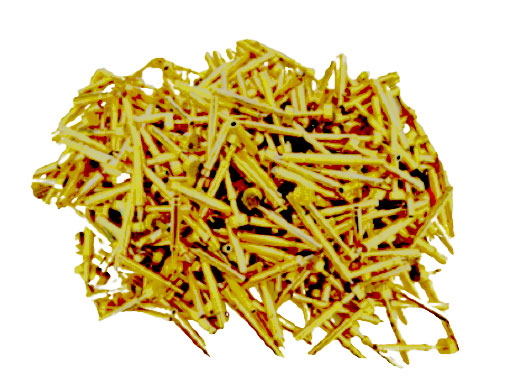
What is the difference between procurement and strategic sourcing?
May 23, 2023
What is precision CNC components?
May 23, 2023What are method used for precious metal refining?
There are several methods used for precious metals refining, depending on the type of metal and the desired purity level. Here are some of the most common methods:
- Pyrometallurgical refining: This method involves using high temperatures to melt and separate metals from other materials. It is typically used for metals with high melting points, such as gold and platinum. The process involves heating the metal in a furnace and then adding flux to remove impurities.
- Hydrometallurgical refining: This method involves using chemical solutions to dissolve metals and then selectively precipitating them out of solution. It is typically used for metals with low melting points, such as silver and copper. The process involves dissolving the metal in an acid or alkaline solution, purifying the solution, and then precipitating the metal out of solution using a reducing agent.
- Electrorefining: This method involves passing an electric current through a metal to purify it. It is typically used for metals that are already in a relatively pure form, such as copper. The process involves placing the metal in a solution and then passing an electric current through it, causing the impurities to separate from the metal and collect at the bottom of the solution.
- Biometallurgical refining: This method involves using microorganisms to extract metals from ores. It is typically used for low-grade ores and for metals that are difficult to extract using traditional methods, such as gold. The process involves using bacteria or other microorganisms to break down the ore and extract the metal.
In addition to these methods, there are also other techniques used for refining precious metals, such as ion exchange, solvent extraction, and membrane separation. The specific method used will depend on the type of metal, the desired purity level, and the available resources and technology.
What is E-waste?
E-waste, short for electronic waste, refers to any electronic device that is no longer wanted or useful and is discarded. This can include items such as computers, cell phones, televisions, printers, and other electronic equipment. E-waste can contain hazardous materials, such as lead, mercury, and cadmium, which can be harmful to human health and the environment if not disposed of properly.
As technology continues to advance and devices become more complex and shorter-lived, the amount of e-waste generated has increased significantly in recent years. According to the United Nations, the world generates around 53 million tons of e-waste per year, and this figure is expected to continue to rise.
E-waste can be recycled and valuable materials, such as gold, silver, and copper, can be recovered from it. However, only a small percentage of e-waste is currently recycled, and much of it ends up in landfills or is exported to developing countries, where it can be processed in unsafe and unregulated ways, causing harm to human health and the environment. To address this issue, many countries have implemented regulations to encourage proper disposal and recycling of e-waste, including the banning of certain hazardous materials and the establishment of e-waste recycling programs.
What is Basel Convention?
The Basel Convention on the Control of Transboundary Movements of Hazardous Wastes and Their Disposal, usually known as the Basel Convention, an international treaty that aims to minimize the generation of hazardous waste and control its transboundary movement. The convention was adopted in 1989 and came into force in 1992.
The convention recognizes that hazardous waste can cause serious damage to human health and the environment, and therefore seeks to protect human health and the environment from the harmful effects of such waste. It establishes a framework for the control of transboundary movements of hazardous waste, requiring that such movements be minimized and controlled in an environmentally sound manner.
Under the Basel Convention, hazardous waste is defined as waste that poses a risk to human health or the environment and that requires special handling and disposal. The convention requires countries to regulate the generation, transportation, treatment, and disposal of hazardous waste, and to ensure that such waste is managed in an environmentally sound manner.
The Basel Convention also establishes a system of prior informed consent for the transboundary movement of hazardous waste. This means that a country must obtain the consent of the receiving country before exporting hazardous waste to that country, and must provide information about the waste to the receiving country.
As of September 2022, there are 190 parties to the treaty, which includes 187 UN member states, the Cook Islands, the European Union, and the State of Palestine have ratified the Basel Convention, making it one of the most widely accepted environmental agreements in the world.
The six UN member states that are not party to the treaty are East Timor, Fiji, Haiti, San Marino, South Sudan, and United States




